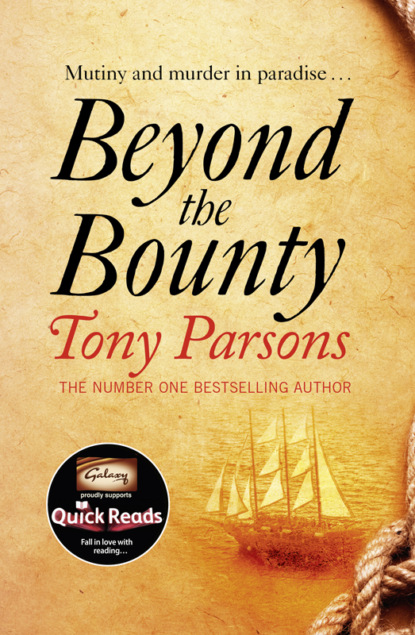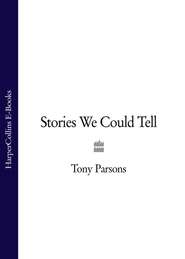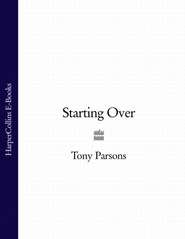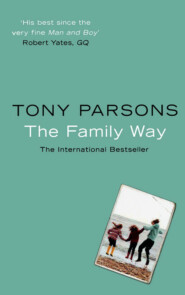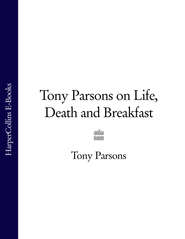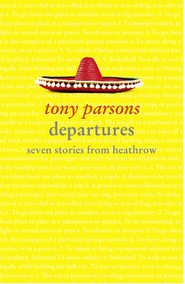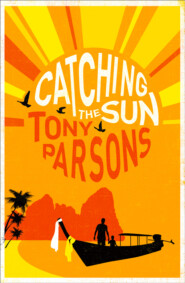По всем вопросам обращайтесь на: info@litportal.ru
(©) 2003-2024.
✖
Beyond the Bounty
Автор
Год написания книги
2018
Настройки чтения
Размер шрифта
Высота строк
Поля
For breadfruit was the reason for the Bounty’s doomed mission to the ends of the earth. We were meant to bring back a cargo of breadfruit so that it could be fed to the slaves of the West Indies. And if it kept those busy fellows going until teatime then the British powers that be were going to feed breadfruit to the entire Empire.
Captain William Bligh was to be to breadfruit what Sir Walter Raleigh had been to the potato. That was the grand plan. Except the Bounty never made it home.
And the only breadfruit that I ever picked went straight into my belly. Or the sea, when we were throwing them at Bligh’s head as we cast him adrift in his little boat to drown in shark-rotten waters, or get his private parts sliced off by unfriendly natives, or – my guess as to Bligh’s fate – starve to death.
But our diet was now better than anything the King had ever dished up when we served in his navy.
There was game on Pitcairn – mostly birds, with lovely crunchy bones – and those wild blue waters teemed with fish. Lobster, yellowtail, Wahoo, snapper, cod. And fish that none of us had never seen before and did not know the names of. These we had to name ourselves – as though we were the Lord himself, naming His creatures.
A soft southern breeze made the climate more like a hot English summer than the furnace we had known in Tahiti or on board the Bounty. Work was easier on Pitcairn, and soon some of us were growing carrots, peas, beans, yams, sweet potatoes and sugarcane (while some of us got drunk on what was left of the rum).
Most importantly, they – the Royal Navy – would never find us here. And even if they did – which they wouldn’t! – find Pitcairn by accident, as we had found it, then we would see them coming.
The only access to the island was the bay where we moored our ship. Bounty Bay, we came to call it – the first place on the island to be given a name.
I looked out at Bounty Bay now from the top of those white cliffs. While a gentle breeze moved my hair, and all of Paradise lay spread below me, I remembered the Bounty as she burned.
The fire had been brighter than the stars, and brighter than the moon. If there had been a ship within one hundred miles, then they would have seen that fire and we would have dangled on a rope in Jamaica or Java or wherever they decided to give us a fair trial before they strung us up.
But nobody saw the fire.
In that great blue expanse of ocean, we were all alone now.
It was like being the last men and women alive in the world.
I stretched my arms to the heavens and let out a breath that I felt I might have been holding for a lifetime.
Then I walked back down the green hill and we buried Fletcher Christian.
‘Perhaps we should help them, Ned,’ said John Adams to me, stooping to whisper in my ear so that none of the others should hear.
We were watching a few of the men from Tahiti dig Fletcher Christian’s final resting place. Our dead leader’s body was wrapped in an oily sailcloth and his young widow was weeping and wailing over it.
I looked up at John. I was a big man but he was bigger. In his meaty hands he held the ship’s Bible.
‘Help them?’ I said, not getting his drift. I turned back to the fresh grave and barked a command. ‘Put your back into it, you idle savages, or you will feel the end of my boot!’ I cried, offering them support in their labours. ‘Soon the sun will be high and the body will be getting ripe!’
The copper-skinned Tahitians looked up at me and grinned with apologies. Then they mopped their brows and carried on digging.
‘If we are to live in this place,’ said John to me, ‘then surely all men must be equal.’
I nodded sagely. ‘Of course, John,’ I said. Then I paused. ‘But that doesn’t include the Tahitians too, does it?’
‘Indeed it does, Ned,’ John said. ‘Tahitians and Englishmen alike. This is our home now. If it is to be a more just and Christian world than the hell William Bligh made for us aboard the Bounty, then surely all men must have the same rights – whatever their tribe.’ John got a look full of zeal in his eyes. I glanced down at the battered old Bible in his hands. ‘And that means we find food together, and we build shelter together, and we dig graves together!’
I murmured vaguely. Then I nodded towards the grave. Only the raven-haired tops of those Tahitian heads were visible now. ‘Well,’ I said, ‘I think they’ve almost finished.’
The Tahitians clambered out and we all formed a circle around the grave. And what a strange little tribe we were, those of us starting from scratch on this uncharted island.
Eight English seamen, some of us still wearing the tattered rags we had worn on the Bounty, others in the light cotton wraps worn by the natives – kirtles, they were called.
Six Tahitian men who had helped us crew the Bounty after we left half of our fellow mutineers on Tahiti.
Eleven women of all shapes and sizes, plus a baby boy who had been born on the quarterdeck of the Bounty.
One of the women gently led Fletcher’s widow to the graveside so we could get on with the funeral. ‘Maimiti,’ said the woman who comforted her, ‘Maimiti.’ It always sounded like ‘My Meaty’ to my scurvy English ears.
Maimiti was across the black hole from me and I had a good look at her. She was the kind of woman that a man can’t stop looking at.
I realised that I had always enjoyed looking at her. Though when our master and commander was husband to her, it had to be done out of the corner of my eye, on the sly.
We were silent apart from the choking sobs of Maimiti. The English mutineers. The Tahitians. Even the baby was sleeping.
John Adams opened his Bible and said a few words.
‘Today we say goodbye to our fallen leader and our beloved brother,’ said John, his voice booming across the open grave. ‘Master’s mate and true captain of His Majesty’s Ship Bounty – Fletcher Christian.’
John gave the nod and a couple of our crew began lowering his body into the grave. The Tahitian man next to me – no more than a boy, really – was examining the dirt under his fingernails. I gave him a quick kick and then he gave the funeral service his full attention.
‘Fletcher believed that we would find no happiness here,’ said John. ‘That we would be forever hiding and shivering like convicts. That life here would be another way of dying. As we say goodbye to our fallen brother, and as we dedicate our lives here to living in the light of the Lord, we hope to prove him wrong …’
It was impressive stuff from John Adams – full of fire and brimstone, the wrath of God and the promise of streets of gold. But I was not really listening. I was too busy watching Maimiti on the other side of the grave, noticing how her body curved under that thin native dress.
She was the loveliest of the lot. The fairest woman I have ever seen. Her eyes flashed with black light. Her skin looked as though it had never spent one day out of the sun. Her teeth were white as bone.
The King’s daughter, so they said. I believe he had several hundred of them.
But this one here, she was said to be the favourite child of King Tynah of Tahiti. And a real king he was too. Although a king in these parts was not quite the same as a king back home. I believe His Majesty King Tynah was the type of monarch who had fifty wives and wiped his royal arse with his hand.
But still, she was the daughter of the king of Tahiti. Maimiti, Maimiti. Daughter of the king, widow of the captain, the most beautiful sight in all of our tropical Eden.
John didn’t look up from his old Bible.
Ashes to ashes, dust to dust. All of that. The usual mournful farewells.
But the other men – Tahitians and English, boys and men – kept glancing up from Fletcher Christian’s grave to steal a look at his young widow.
Вы ознакомились с фрагментом книги.
Приобретайте полный текст книги у нашего партнера:
Приобретайте полный текст книги у нашего партнера:





